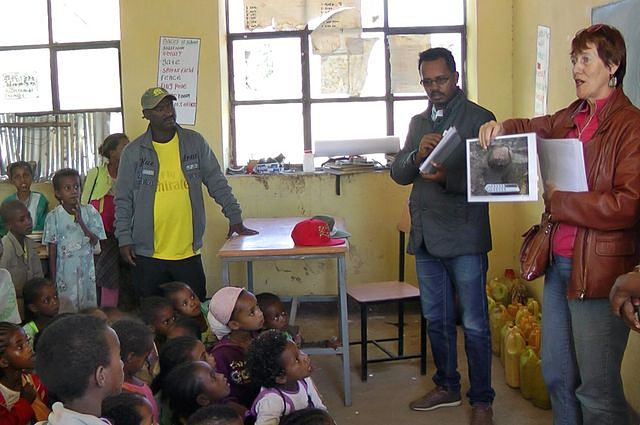 UCLA professor Willeke Wendrich talks to school children in northern Ethiopia. (Photo: UCLA)
UCLA professor Willeke Wendrich talks to school children in northern Ethiopia. (Photo: UCLA)
Near the small village of Mai Adrasha in Ethiopia, UCLA archaeologists found themselves digging into more than dirt. They were also diving into another role, serving as ambassadors of history to help the local community understand that there is wealth not only in the natural gold-rich soil that encloses long-buried ancient ruins, but also in preservation of cultural heritage.
“We decided it was really worthwhile to keep this site so we spent a lot of time this season talking to people who live around Mai Adrasha,” said Willeke Wendrich, director of the Cotsen Institute and professor of Egyptian archaeology and digital humanities, who has led digs in the area for the last two years.
The results of their efforts were heartening — for archaeology as a whole and for the UCLA team in particular.
Wendrich, her co-director and graduate student Rachel Moy and their team recently returned from their second excavation near Mai Adrasha, in the region of northern Ethiopia called Shire. With several active trenches, they are looking for evidence from the pre-Aksumite era (before 300 B.C.), a period that remains something of an archaeological mystery, partially because the remains of it are disappearing as a result of humans hunting for gold.
—
Join the conversation on Twitter and Facebook.

























